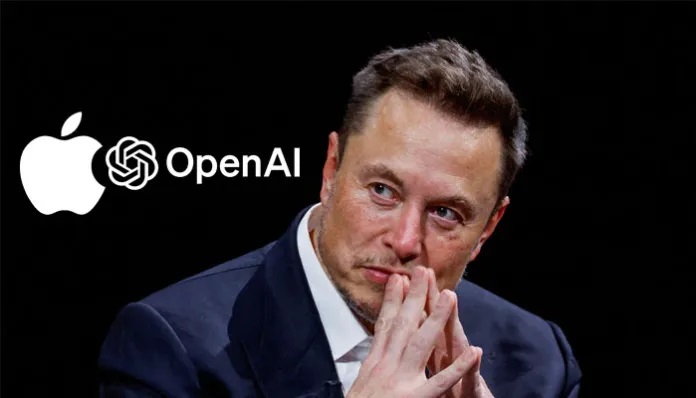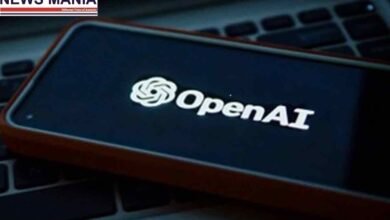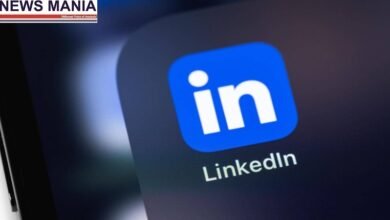Elon Musk Considers Banning Apple Devices at His Companies Following Apple’s OpenAI Partnership

News Mania Desk/ Agnibeena Ghosh/11th June 2024
Elon Musk has stirred controversy by threatening to prohibit the use of iPhones and MacBooks within his companies after Apple announced its partnership with OpenAI. This development has significant implications for employees at Tesla, SpaceX, and other ventures under Musk’s leadership.
The announcement came shortly after Apple revealed its collaboration with OpenAI, the artificial intelligence research lab that Musk co-founded but later distanced himself from. This partnership aims to integrate advanced AI technologies into Apple’s ecosystem, enhancing Siri and other AI-driven services.
Musk expressed his displeasure with the partnership, citing concerns over OpenAI’s direction and Apple’s growing influence in the AI sector. He took to social media, hinting at a potential ban on Apple products across his companies. Musk’s criticism is rooted in his belief that OpenAI’s current trajectory diverges from its original mission of promoting safe and equitable AI.
In a series of tweets, Musk articulated his apprehensions about the implications of Apple’s partnership with OpenAI. He questioned the alignment of OpenAI’s values with those of major tech corporations, hinting at the potential for conflicts of interest and ethical dilemmas. Musk’s statements have sparked a broader conversation about the role of major tech companies in shaping the future of AI.
The potential ban on Apple devices poses significant challenges for employees who rely on these tools for their daily work. iPhones and MacBooks are widely used across Musk’s enterprises, and such a move could necessitate a major transition to alternative technologies. This shift could impact productivity and require substantial adjustments in workflow and infrastructure.
Musk’s threat has elicited mixed reactions from industry experts and the public. Some view it as a bold stance against the consolidation of power within the tech industry, while others see it as a disruptive move that could create unnecessary friction. The debate underscores the broader concerns about the influence of tech giants on emerging technologies and the ethical considerations surrounding AI development.
Apple, for its part, has not issued a formal response to Musk’s statements. The company continues to emphasize the potential benefits of its partnership with OpenAI, highlighting advancements in AI capabilities that could enhance user experiences and drive innovation.
This incident is not the first time Musk has voiced his concerns about AI. He has been a vocal critic of unregulated AI development and has advocated for stringent oversight to prevent potential risks. Musk’s stance on AI aligns with his broader vision of ensuring that technological advancements benefit humanity as a whole, without compromising safety or ethical standards.
As the situation unfolds, it remains to be seen whether Musk will follow through with the ban on Apple devices. The potential ramifications of such a decision are far-reaching, impacting not only his companies but also the broader tech ecosystem. This development highlights the complexities and tensions inherent in the rapidly evolving field of artificial intelligence.
In conclusion, Elon Musk’s threat to ban iPhones and MacBooks at his companies following Apple’s partnership with OpenAI has sparked significant debate. The move reflects broader concerns about the direction of AI development and the influence of major tech companies. As stakeholders await further developments, the incident underscores the importance of ethical considerations in the advancement of technology.






